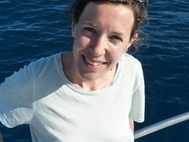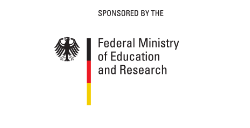Press release: Thursday 15 December 2016 at 12:00 GMT
Media contact: Holly Bestley / +44 (0)20 7449 6288 /holly.bestley [at] zsl.org
Interviews: Available with Joanna Barker (ZSL) and other partners on request
High resolution images available: https://zslondon.sharefile.com/d-s58ece4d22234919b
Saving angels: new plan aims to conserve Critically Endangered Angelshark
Collaborative strategy launches to protect species in its last stronghold
Once widespread throughout the Eastern Atlantic and Mediterranean Sea, the unusual Angelshark (Squatina squatina) has suffered severe declines over the past century, largely due to the intensification of commercial fishing practices. Following a significant decline in its historical range, the waters around the Canary Islands now represent the last stronghold for this shark, and its protection in this area has been recognised as a conservation priority for the species.
The Angelshark Action Plan for the Canary Islands was drawn up by the Angel Shark Project – a partnership between ZSL (Zoological Society of London), Universidad de Las Palmas de Gran Canaria (ULPGC) and Germany’s Zoological Research Museum Alexander Koenig - Leibniz Institute for Animal Biodiversity (ZMFK) - in collaboration with the IUCN Shark Specialist Group, the Shark Trust and SUBMON. The Plan sets out a 10-year roadmap designed to ensure a coordinated approach to conserve Angelsharks in the archipelago – the first such plan developed for this species.
ZSL marine conservationist Joanna Barker – lead author of the Angelshark Action Plan – said: “Given the restricted range for Angelsharks in European waters, we recognised a unique opportunity to develop a specific set of actions intended to safeguard the future of this Critically Endangered species. The Plan represents a new era for Angelshark conservation and will hopefully enable coordinated conservation to flourish across the Canary Islands”
The Action Plan was developed with input from a range of local and international stakeholders, including divers, scientists and conservationists, alongside the Canary Islands and Spanish governments. It includes a comprehensive exploration of the threats facing Angelsharks, as well as specific actions to mitigate these issues and recommendations for strengthening formal protection of the species.
Dr Nicholas Dulvy, ZSL Fellow and Co-chair of IUCN Shark Specialist Group said; “Our research revealed that incidental catch by commercial and recreational fisheries, along with habitat loss and degradation, are the primary threats that face the species, with disturbance by divers and beachgoers also having an impact.” “We hope that through the implementation of this plan, we will be able to achieve the vision it lays out – for Angelsharks in the Canary Islands to be abundant and protected in their unique stronghold.”
Launching alongside the Angelshark Action Plan is a new Angel Shark Sightings Map, designed to gather public sightings for this species, the Angelshark, and an additional two Critically Endangered angel shark species found in the East Atlantic and Mediterranean Sea. This map allows citizen scientists to report sightings of angel sharks during dives, fishing trips or even at fish markets to help inform conservation and management.
Dr. David Jimenez Alvarado of ULPGC (IU-ECOAQUA) and project officer of the Angel Shark Project said: “It is vital to understand the critical habitats of this majestic and poorly known shark in this unique stronghold, and we encourage all people involved in this project from the government to children in schools to work together to secure the future of this Critically Endangered species.”
-----
Additional Quotes:
Zoological Research Museum Alexander Koenig - Leibniz Institute for Animal Biodiversity:
Eva Meyers, Research lead of the Angel Shark Project added that:
“This Action Plan will provide a more focused guideline to prioritise and implement targeted conservation and research activities in a collaborative manner. The shared Angelshark Sightings Map will be the first collaborative effort to unify data and efforts from various stakeholders in the Canary Islands.”
The Shark Trust:
Ali Hood, Director of Conservation for the Shark Trust commented: “While we appreciated that fishing pressures present the main threat to Angelshark, developing the plan helped us hone-in on specific practices where engagement with the local fishing industry could help reduce incidental catch and associated mortality. This plan gives us the route map for practical action!”
SUBMON
“Spain and Canary Islands already have the tools to protect this species, they just need to use them properly to effectively protect the Atlantic population of Angelshark”, Alex Bartoli, fisheries consultant from SUBMON.
Notes to Editors
Media Contacts:
UK: holly.bestley [at] zsl.org 0044 207 449 6288
Canary Islands: comunicacion [at] ulpgc.es 0034 928-45 10 35 / 0034 928-45 10 28
Spain: alexbartoli [at] submon.org 0034 636 475 999
Germany: S.Heine [at] zfmk.de
High resolution images available: https://zslondon.sharefile.com/d-s58ece4d22234919b
Angelshark
The Angelshark (Squatina squatina) is a flattened shark, normally found on seabed to at least a 150m depth. This species uses its broad fins to bury itself in the sand and ambush prey that swim within reach. It can reach up to 2.4m in length and opportunistically feeds on a range of fish, crustaceans and molluscs. Angelshark refers to the common name of the species Squatina squatina, whilst angel shark refers to the angel shark family Squatinidae (ie. more than one species).
Angel Shark Project
The Universidad de Las Palmas de Gran Canaria (ULPGC),Zoological Research Museum Alexander Koenig - Leibniz Institute for Animal Biodiversity(ZFMK) and Zoological Society of London (ZSL), set up the Angel Shark Project in 2014 with the overall goal to safeguard the future of Critically Endangered angel sharks throughout their natural range. The Angel Shark Project is an interdisciplinary programme that collects ecological and population data whilst engaging with local communities, researchers and government to raise awareness and deliver conservation action. www.angelsharkproject.com
IUCN SSC Shark Specialist Group
The International Union for the Conservation of Nature Species Survival Commission Shark Specialist Group (SSG) is a global network of experts in the biology, taxonomy, use, and conservation of sharks, rays, and chimaeras (cartilaginous fishes, Class Chondrichthyes). The SSG currently has more than 170 members from 55 countries collaborating to assess threat level, collate knowledge, highlight species at risk, and advise decision makers on effective, science-based policies for sustainable use, and long-term conservation. www.iucnssg.org
The Shark Trust
The Shark Trust was established in 1997 to provide a voice for sharks in the UK. Today, as a well-respected advocate for shark management and protection, the Trust works to safeguard shark and ray populations by advocating for science‐based conservation and sustainably managed fisheries. For more information visit: www.sharktrust.org.
SUBMON
SUBMON is a non for profit organization that, since 2003, has developed projects focused in the different aspects of research, awareness and conservation of the marine environment. SUBMON’s working team consists of biologists, veterinarians, engineers, naturalists and education professionals, who apply their technical knowledge in the fields of conservation biology and medicine, and to establish sound environmental education and awareness strategies, always related to the marine environment.www.submon.org
Universidad de Las Palmas de Gran Canaria (ULPGC)
The Universidad de Las Palmas de Gran Canaria (ULPGC) is one of the leading Spanish universities and is a leader in the use of new technologies and research related to marine and maritime areas. It is comprised of 153 research groups covering all fields of knowledge.www.ulpgc.es
Zoological Research Museum Alexander Koenig - Leibniz Institute for Animal Biodiversity
(ZMFK)
Zoological Research Museum Alexander Koenig - Leibniz Institute for Animal Biodiversity
Foundation under public law(ZFMK) is one of the largest natural history research museums in Germany. The museum has earned its reputation as a leader in the documentation, research, and interpretation of biodiversity.bonn.leibniz-lib.de
ZSL
Founded in 1826, the Zoological Society of London (ZSL) is an international scientific, conservation and educational charity whose mission is to promote and achieve the worldwide conservation of animals and their habitats. Our mission is realised through our ground-breaking science, our active conservation projects in more than 50 countries and our two Zoos, ZSL London Zoo and ZSL Whipsnade Zoo. For more information visit www.zsl.org
Use of Images and Video
Photographs, video or graphics distributed by the Zoological Society of London (ZSL) to support this media release may only be used for editorial reporting purposes for the contemporaneous illustration of events, things or the persons in the image or facts mentioned in the media release or image caption. Reuse of the picture or video requires further permission from the ZSL press office.







